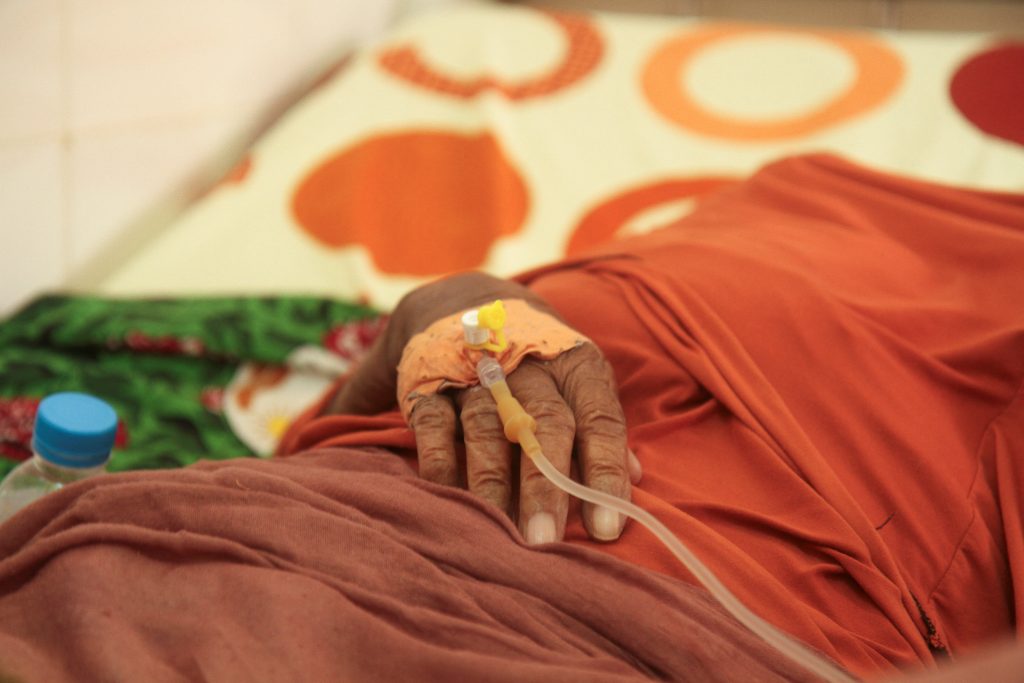High temperatures are dangerous for people’s physical health. But recent studies have begun to reveal just how dangerous they can also be for mental health. Rising heat can intensify symptoms of mood disorders, interact with medications in ways that make it near impossible to cool off, and spike emergency room visits for mental health. In fact, one United States study of emergency room visits tracked an 8 percent increase in mental health related visits on hotter summer days.
Extreme heat comes with notable and often deadly consequences. From negative interactions with medicines to rising cases of suicide, people experiencing mental illness are set to become more vulnerable as the planet keeps heating up.
In this era of global boiling, policymakers and key stakeholders must anticipate ways to reduce vulnerabilities and exposure to extreme heat that protects people with a history of or experiencing mental illness.
Understanding the link between mental health and extreme heat
Interactions with prescription medication
High temperatures are dangerous for people with chronic illnesses, and those with mental illness are no exception. Heat can aggravate interactions with prescription and over-the-counter medications. A recent study found that many medications—like certain antidepressants—can interfere with sweat production or exacerbate dehydration. These effects can be deadly when temperatures soar—and not just for prescriptions. Many over-the-counter medications can increase the risk of sunburn or sun sensitivity.
Further, extreme heat makes medications less effective across the board. As temperatures rise across the globe, the way medication is transported and delivered is under threat. Pharmacies have already experienced concerns with the sweltering heat of delivery trucks. Some drivers have reported temperatures as high as 150 degrees Fahrenheit. The extreme heat can degrade medications, making them less effective or even unsafe for the people who need them.
The threat of temperature regulation
When heat rises, it can be challenging for many people to cool off. But this can be especially concerning for people experiencing certain mental illnesses like schizophrenia. Emerging research has found that people with schizophrenia have more difficulty regulating their body temperature.
Hospital admissions spike on hot days, and it can rise up to 40 percent for people with mood disorders. Other studies have found that people with depression have higher average body temperatures, which could make cooling more difficult.
While the exact mechanisms are not entirely understood, it is clear that extreme heat places an additional health burden on people already living with the impacts of mental illnesses.

Rising heat, rising tempers
Heat’s effects on human behavior are often subtle and complex, made more so because it is difficult to isolate the effects of temperature alone. However, there is nevertheless an established and growing field of evidence linking extreme temperatures to behavioral changes. Among the most dangerous is the well established link between hot weather and aggression.
Some scientists argue this is because the human body produces adrenaline in response to extreme heat, which they posit has the side effect of increased aggression. A recent study found that unexpectedly hot days saw a 9.4 increase in aggravated assaults and a 19.4 percent increase in homicides. Additional studies have found a correlation between rising temperatures and spikes in cases of domestic violence.
The hot weather has also been linked to an uptick in online hate speech. Researchers in Germany found that hateful posts on X rose up to 22 percent during extreme heat waves. With summers getting hotter each year, researchers are concerned with a continued rise of online hate.
What can we do?
As heat waves become more common, can policy makers lessen the dangerous mental health consequences? Early research suggests there are clear steps. Aligned with the recommendations for physical health, policymakers can increase access to cooling—which scientists have argued can help keep aggression in check—and develop robust medical systems in place that is able to identify and treat heat related health conditions.
However, the first step is to recognize that like other adverse impacts of heat, not everyone is affected equally. Socioeconomic factors can exacerbate vulnerability, causing cascading negative impacts for people with mental illnesses who are already more likely to live in poverty or have co-occurring chronic conditions. It is therefore necessary to tailor strategies and prioritize equity to ensure that the most at risk are protected.
On a systemic level, stakeholders must both increase their city, state, or country’s resilience to the shocks and stresses of climate change, while doing everything in their power to mitigate against further global warming.
Explore more
Catherine Wallace is the associate director of strategic partnerships and advocacy for the Arsht-Rock Resilience Center. Kathleen Euler is the associate director of digital communications for the Arsht-Rock Resilience Center.


